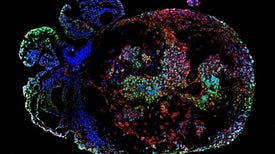
Here’s Why AI May Be Extremely Dangerous—Whether It’s Conscious or Not
Artificial intelligence algorithms will soon reach a point of rapid self-improvement that threatens our ability to control them and poses great potential risk to humanity

Artificial intelligence algorithms will soon reach a point of rapid self-improvement that threatens our ability to control them and poses great potential risk to humanity

Is generative AI bad for the environment? A computer scientist explains the carbon footprint of ChatGPT and its cousins—and how to reduce it

Politically polarized Google users are not steered to partisan sites by the search engine’s algorithm but generally decide to go there on their own

A flexible, conductive membrane that can pass sensory information to the brain and muscles is a step towards artificial skin

From the technology upsetting jobs and causing intellectual property issues to models making up fake answers to questions, here’s why we’re concerned about generative AI.

Using artificial intelligence like ChatGPT to trade stocks and other financial instruments could have benefits—and perils

AI-powered facial recognition will lead to increased racial profiling

Facing Russia’s nuclear threats, the U.S. and its G7 allies must not whitewash their own

A new study reveals why handmade fermentation vessels called onggi stand the test of time

At 25 days old, these specimens could be the oldest primate embryos ever grown outside the womb
Support science journalism.

Thanks for reading Scientific American. Knowledge awaits.
Already a subscriber? Sign in.
Thanks for reading Scientific American. Create your free account or Sign in to continue.
Create Account